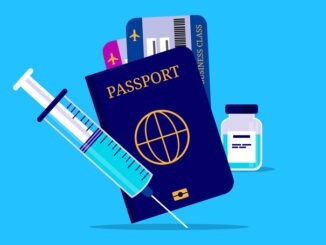As reported by BBC News, patients in England waiting more than 40 weeks for treatment will be contacted to explore the possibility of receiving care elsewhere, aiming to alleviate backlog bottlenecks in the healthcare system.
About 400,000 will be contacted in the coming weeks and asked whether they would be willing to travel and how far.
Patients already have a right to ask for treatment elsewhere.
But NHS England believes that by proactively contacting the longest waiters they will help unlock some of the worst bottlenecks in the system.
Only those who do not have an appointment already scheduled within the next eight weeks will receive the offer via text, email or letter.
The 400,000 figure represents about 5% of the total number waiting for treatment.
If a patient is happy to travel, the treatment could either be in an NHS or private sector hospital.
Those on low incomes will be entitled to some financial support to enable them to travel for treatment.
Patients will retain their place on the waiting list at their local hospital while other options are explored.
NHS England chief executive Amanda Pritchard said it was “absolutely right” to make the most of available capacity across the country to reduce backlogs.
Waits for treatment can vary greatly, with some hospitals able to treat patients three times more quickly than others for common orthopaedic procedures such as hip and knee operations.
As someone waiting longer than 40 weeks for treatment, Anastasia Tempest is expecting to get an offer to travel for treatment from the NHS soon.
Ms Tempest, who lives in Leeds and has cerebral palsy, needs a procedure for a stomach and bladder problem.
She says she would be willing to travel if she could get her travel expenses covered.
“I feel rather forgotten. I’ve not been told anything about when my operation might be, I have done some chasing but they just tell me I’m on the waiting list which seems to be the stock answer really.
“I want the problem sorted because it’s very unpleasant – I have between six and eight contractions a day, and these contractions are excruciatingly painful which is not good at all,” she says.
“This problem is really affecting my life and it’s not good.”
Ms Tempest says if she had a bit of notice, she’d be willing to travel for the operation.
“It would take quite a lot of planning, but I would be up for it.”
Health Secretary Steve Barclay said empowering people to exercise choice would help “tackle waiting lists and improve access to care”.
Louise Ansari, of the patient watchdog Healthwatch England, welcomed the move, saying long waits were having a devastating impact on both the physical and mental health of people.
But she said it needed to be backed by more financial support.
“People have also told us that they would welcome the opportunity to travel to receive care more quickly, as long as any additional costs incurred would be covered.”
She said if people did not receive the support they needed to travel, the move risked widening inequalities.
Saffron Cordery, deputy chief executive of NHS Providers, which represents hospitals, said patient choice should not be seen as a “magic bullet”.
“Long waiting times are a symptom of years of severe workforce shortages and underinvestment in the NHS,” she added.



Be the first to comment